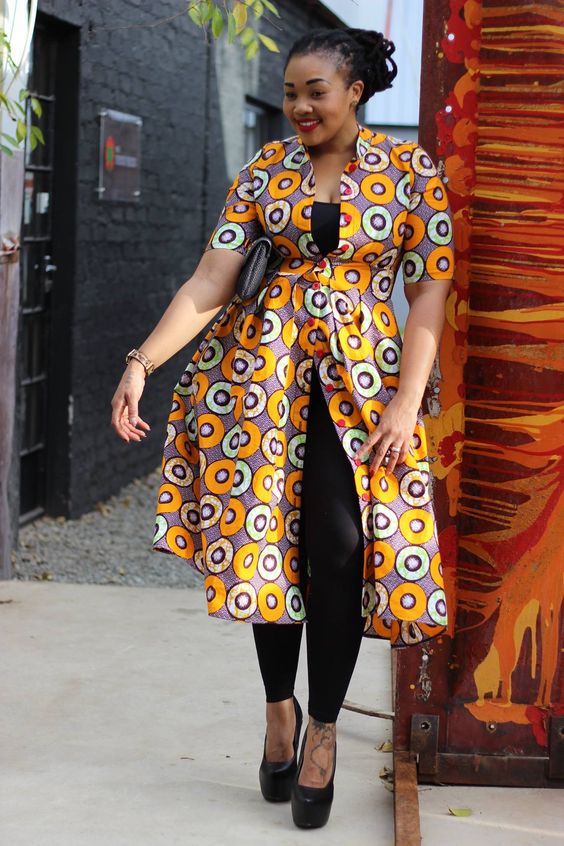A Guide To African Outfits: Embracing The Richness Of Culture And Style
African outfits are a beautiful representation of the continent's diverse cultures, traditions, and histories. From the vibrant colors to intricate patterns, each piece of clothing tells a story and reflects the identity of its wearers. In this comprehensive guide, we will explore the various styles, fabrics, and occasions for wearing African outfits, while also delving into their significance in different cultures. Whether you’re looking to incorporate these stunning garments into your wardrobe or simply want to learn more about them, this article is your ultimate resource.
The world of African fashion is as vast and varied as the continent itself. Each region boasts its unique styles, materials, and influences, creating a rich tapestry of fashion that is both contemporary and traditional. In the following sections, we will highlight some of the most popular African outfits, their origins, and how they can be worn for different occasions.
By the end of this article, you will not only appreciate the beauty of African outfits but also understand their significance in modern fashion. Join us on this exciting journey through the world of African attire, and discover how these garments can enhance your personal style.
Table of Contents
- 1. The Significance of African Outfits
- 2. Popular Types of African Outfits
- 3. Fabrics Used in African Fashion
- 4. How to Style African Outfits
- 5. African Outfits for Different Occasions
- 6. The Evolution of African Fashion
- 7. Where to Buy Authentic African Outfits
- 8. Conclusion
1. The Significance of African Outfits
African outfits are not just clothing; they are a reflection of identity, culture, and heritage. Each region in Africa has its traditional garments that carry deep meanings and are often worn during significant life events such as weddings, festivals, and ceremonies. The colors, patterns, and styles used in these outfits often symbolize various aspects of life, such as spirituality, community, and individuality.
For instance, in many West African cultures, the vibrant colors used in clothing are believed to represent joy and celebration. In contrast, more subdued colors might be worn during mourning periods. This rich symbolism makes African outfits an essential part of cultural expression and identity.
Understanding Cultural Symbolism
- Colors represent emotions and social status.
- Patterns often tell stories or signify tribal affiliations.
- Styles differ markedly between regions, showcasing diversity.
2. Popular Types of African Outfits
There are numerous styles of African outfits, each with its unique charm and significance. Here are some of the most popular types:
Dashiki
The dashiki is a colorful garment worn in West Africa, characterized by its loose fit and elaborate designs. It is often worn by both men and women and is perfect for casual and formal occasions.
Boubou
The boubou is a flowing robe that is commonly worn in West African countries. It is typically made of lightweight fabric and can be adorned with intricate embroidery.
Kente Cloth
Kente is a traditional Ghanaian textile made from silk and cotton, known for its vibrant colors and intricate patterns. It is often used to make ceremonial garments.
Ankara
Ankara fabric is a colorful cotton fabric that has gained international popularity. It is versatile and can be used to create dresses, skirts, and even accessories.
3. Fabrics Used in African Fashion
The choice of fabric plays a significant role in African fashion. Here are some common fabrics used:
- Adire: A traditional tie-dye fabric from Nigeria.
- Wax Print: Known for its vibrant patterns, often used in making dresses and skirts.
- Kente: A handwoven fabric from Ghana, rich in symbolism.
- Batik: A traditional dyeing technique that creates intricate designs.
4. How to Style African Outfits
Styling African outfits can be both fun and creative. Here are some tips to help you look your best:
- Pair a dashiki with fitted jeans for a balanced look.
- Accessorize with traditional jewelry to enhance the outfit.
- Choose footwear that complements the style, such as sandals or beaded shoes.
5. African Outfits for Different Occasions
Understanding when to wear specific outfits is essential. Here are some occasions and suitable outfits:
- Weddings: Boubou or Kente attire is often worn.
- Festivals: Brightly colored Ankara outfits are popular.
- Cultural Events: Traditional garments that reflect heritage are appropriate.
6. The Evolution of African Fashion
Over the years, African fashion has evolved significantly. Modern designers are blending traditional styles with contemporary trends, leading to a unique fusion that is gaining global recognition. Many designers now showcase their work on international runways, highlighting the beauty of African outfits to a worldwide audience.
7. Where to Buy Authentic African Outfits
If you're looking to purchase authentic African outfits, consider the following options:
- Local markets in Africa, where you can find handmade garments.
- Online retailers specializing in African fashion.
- Fashion boutiques that focus on ethnic clothing.
8. Conclusion
In conclusion, African outfits are a vibrant expression of culture and identity. From the intricate designs to the rich symbolism, these garments are more than just clothing; they are a celebration of heritage. We encourage you to explore the world of African fashion, whether by wearing these outfits or learning more about their significance. Share your thoughts in the comments below or explore more articles on our site!
Exploring The Enigmatic World Of Mandykiss: A Comprehensive Guide
Exploring The Rise Of Lexi2Legit On Instagram: A Comprehensive Insight
Unleashing The Power Of Haters Quotes: Embrace The Negativity

